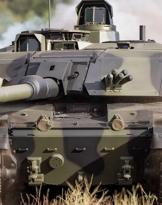The ranking of the fifteen budgets of the countries that have invested the most in Defense has been drawn up.
It turns out, for example, that Italy in the 2014 has invested in military spending little more than Israel.
The United States confirms itself as the country with the highest defense spending with a budget, for 2014, of 581 billion.
The second country that, for all intents and purposes, will become the second superpower in the world in the next five years, is China with 129 billion dollars spent.
According to the Chinese government, the allocated budget aims to modernize the entire military apparatus and not to equip a front line in view of a war of power in the Region.
We can only rely on ourselves for the research and development of most of our military technology - Chinese government spokesman Fu Ying said, analyzing this data - meanwhile, we need to continually improve the conditions of our soldiers.
A balance which, it should be noted, could be much more conspicuous. According to the Japanese, in fact, the "Chinese budget lacks transparency". According to Tokyo, which considers the presence of the United States fundamental for the stability of the region, China would have invested at least thirty billion dollars more.
China owns seventy-seven surface vessels, more than sixty submarines, fifty-five large and medium-sized amphibious ships and about eighty-five small missile launchers.

The third country that has invested more in defense is Saudi Arabia with eighty one billion dollars. An excellent US buyer, the country has the latest equipment, almost entirely purchased by the Americans.
Just to give an example. Saudi Arabia has 170 fighter f-15 Eagle (more than ninety ordered) and a little less than 400 tanks M1A2 Abrams as first armored line.
Seventy billion dollars have been invested by Russia in the 2014. Moscow, by the 2020, expects to invest almost 600 billion dollars to renew all the branches of the army.
Germany, Europe's most populous nation, despite its strong economy spends a misery on Defense. Suffice it to say that a recent internal study concluded that "the German army is theoretically ready." Berlin with its 44 billion dollars spends less than India.
Even the armed forces of the United Kingdom (eleven nuclear-powered submarines) are sailing in good waters at a cost of 62 billion dollars.
France, a power equipped with sixteen nuclear-powered submarines, has invested 53 billion dollars.
Japan has invested 48 billion dollars, while India has allocated 44 million dollars.
In the top 15 there is also Brazil with 32 billion dollars in military spending.
 Then comes Italy with twenty-four billion dollars. Also in this case, the amount invested is not considered to be in line with expectations.
Then comes Italy with twenty-four billion dollars. Also in this case, the amount invested is not considered to be in line with expectations.
Last September, during the NATO summit that took place in Wales, a common finding emerged for most of the member countries of the alliance: the deterioration of the armed forces and the need to return to investing in military spending. Each NATO member country would have to invest 2 per cent of GDP for defense, a goal that, at the 2013, was achieved only by four of the twenty-eight European allied nations.
The US invests 4,4 per cent of its GDP on average. European nations average 1,6 per cent.
South Korea, with the ninth most powerful army in the world, has allocated 34 billion dollars.
Israel (eight million inhabitants) has invested 23 billions of dollars in the most powerful armed force in the Middle East. Suffice it to say that the targeting capacity of the Israeli air force is second only to that of the United States.
Queuing, loyalist Iraq that has removed 19 billion-dollar allowances.
Franco Iacch

(photo: MoD Fed. Russian / Boeing / EI)












